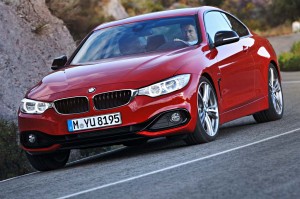By most accounts, China is expected to become the world’s largest market for luxury cars before the end of the decade. But BMW is apparently in a rush there and expects the booming Asian nation to overtake the U.S. as its lead market by the end of 2013.
Locked in a three-way global battle with German competitors Mercedes-Benz and Audi, all three have been pushing hard to win over the growing number of affluent Chinese motorists, and BMW’s gains have so far this year run well ahead of the overall growth of the Asian market, driven by the arrival of new products such as the latest-generation 5-Series.
As a result, Chinese sales already exceeded demand in the U.S. for the first half of 2013, noted Karsten Engel, who oversees BMW’s China operations, and should maintain that lead for the rest of the year.
While product is clearly helping BMW gain traction there, it’s also benefiting from the continued expansion of the Chinese economic boom which originally was centered around the Pacific coast, in cities such as Beijing and Shanghai. But now, the “motorization” is moving inland to the estimated 200 other Chinese cities with a population of at least 1 million.
“Strong growth in future will come from the smaller cities, and the strong growth will also come especially from the western region,” Engel told the Bloomberg news service.
(China expected to become world’s largest luxury car market. Click Here for the full story.)
BMW is by no means the only maker looking to expand beyond China’s Pacific rim region. Volvo, for one, is putting a heavy focus on so-called Tier 3, 4 and 5 cities that are less brand loyal than well-developed markets like Shanghai and Beijing, a senior official recently told TheDetroitBureau.com.
(Click Here for more on Volvo’s Chinese Fire Drill.)
There could be room for many players: new Nielsen research suggests 68% of Chinese car purchases will be in smaller cities over the next year.
In fact, that shift may accelerate as the result of new Chinese government policies aimed at coping with the endemic smog and traffic congestion issues that plague Tier I cities like Beijing. As TheDetroitBureau.com reported this week, regulators are planning to issue new rules limiting vehicle registrations in eight major cities, including Tianjian and Chongqing that could otherwise slash vehicle sales in China by as much as 2% of the current market.
(For more on those planned restrictions, Click Here.)
BMW’s aggressive moves in China yielded a 15% gain in sales during the first half of this year, with the maker forecasting a 10% increase for all of 2013 – which reflects general concern that the Chinese economy is sputtering a bit.
Nonetheless, the maker has made ample gains on its key competitor in China, Volkswagen’s Audi subsidiary. VW was one of the first automakers to enter the market and Audi has long been positioned as the leading luxury brand. But over the last three years, BMW has increased sales 40% compared to Audi’s 30% gain, according to Chinese industry data.
The two makers, in turn, have left rival Mercedes-Benz struggling in an unfamiliar third position that led it to shake up its management team late last year. To underscore the significance of the Chinese market, the new boss has been appointed to the German maker’s Supervisory Board, a position no other regional chief executive holds at the company.
The 54-year-old Engel is also new to the job, having joined BMW China in January, succeeding Christoph Stark who saw sales there jump 1500% during his own eight-year tenure.
A critical test for Engel and BMW will come over the next year when the maker introduces to China its new i3 and then the i8, new battery-based vehicles that will be part of a new sub-brand of electrified models.
The timing might prove prescient as China hopes battery power can play a key role in its efforts to reduce air pollution. In fact, the new automotive sales restrictions are expected to leave loopholes allowing motorists to purchase battery cars without limit.


Unfortunately the sales growth for the European brands in China may come to a screaming hault for two reasons. The Chinese government has decided that autos contribute too much to air polution so they are reportedly going to cap total sales. In addition Chinese auto sales have plateaued and thus may curbed themselves without government intervention.